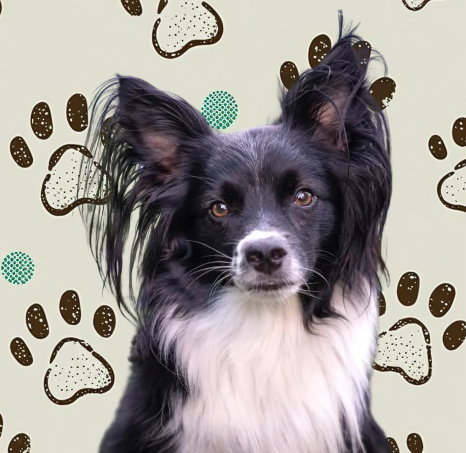Welcome to Dog Training Newbies !
Welcome to Dog Training Newbies !

Papillons, with their distinctive butterfly-like ears and lively personalities, are a delightful breed known for their intelligence, agility, and affectionate nature. Ensuring that your Papillon receives proper nutrition is crucial for maintaining their health, vitality, and overall well-being. Just like any dog, Papillons have specific dietary needs that must be met to support their active lifestyles and prevent common health issues. In this article, we will explore the key aspects of nourishing your Papillon, from understanding their nutritional requirements to selecting the right food and establishing a feeding routine.
One of the first things to understand about Papillon nutrition is that this breed, despite its small size, has a high metabolism and requires a diet rich in quality nutrients. The foundation of a healthy diet for your Papillon should be high-quality protein. Protein is essential for muscle development, energy, and overall growth. Look for dog foods that list a high-quality source of animal protein, such as chicken, beef, or fish, as the first ingredient. Avoid foods that rely heavily on fillers like corn, wheat, or soy, as these can be harder for your dog to digest and provide little nutritional value.
In addition to protein, your Papillon's diet should include healthy fats. Fats are a vital source of energy and are necessary for the absorption of fat-soluble vitamins. Omega-3 and Omega-6 fatty acids, found in ingredients like fish oil and flaxseed, are particularly beneficial for maintaining a healthy coat and skin. Carbohydrates are also important, but they should come from high-quality sources such as sweet potatoes, brown rice, and oats, which provide sustained energy without causing blood sugar spikes.
Vitamins and minerals play a crucial role in your Papillon's health. These micronutrients support various bodily functions, including immune health, bone development, and metabolic processes. A balanced dog food should provide a comprehensive range of vitamins and minerals. However, it is also important to note that over-supplementation can be harmful, so always choose a diet that is specifically formulated to meet the nutritional needs of small breed dogs.


When it comes to feeding your Papillon, portion control is essential. Despite their small size, Papillons are prone to obesity if overfed or given too many treats. Follow the feeding guidelines provided by your chosen dog food brand, but also take into account your dog's age, weight, activity level, and overall health. Puppies, for example, require more frequent meals to support their rapid growth and high energy levels, while adult Papillons may do well with two meals a day.
Establishing a regular feeding schedule is beneficial for both you and your Papillon. Consistent meal times help regulate your dog's digestion and can prevent issues such as hypoglycemia, which small breeds are particularly susceptible to. Divide the daily recommended amount of food into two or three meals, spaced evenly throughout the day. This routine not only supports their metabolic needs but also helps prevent overeating and keeps their energy levels stable.
Treats can be a valuable tool for training and rewarding your Papillon, but they should be given in moderation and should not comprise more than 10% of their daily caloric intake. Choose healthy, low-calorie treats, and be mindful of the ingredients to avoid additives and fillers. You can also use small pieces of fruits and vegetables, such as apples or carrots, which can be nutritious and satisfying alternatives.
Hydration is another critical aspect of your Papillon's nutrition. Always ensure that fresh, clean water is available to your dog at all times. Dehydration can lead to serious health problems, especially in small breeds, so monitor their water intake and encourage them to drink regularly, particularly after exercise or in hot weather.
Special dietary considerations may be necessary for Papillons with specific health issues. For instance, if your dog has allergies or food sensitivities, you may need to choose a limited-ingredient diet or a hypoallergenic formula. If your Papillon has dental issues, you might consider feeding them smaller kibble or incorporating wet food to make eating easier. Always consult with your veterinarian before making significant changes to your dog's diet, especially if they have underlying health conditions.
In conclusion, nourishing your Papillon with proper nutrition and a balanced diet is fundamental to their health and happiness. By prioritizing high-quality ingredients, maintaining portion control, and establishing a consistent feeding routine, you can ensure that your Papillon thrives. Regular veterinary check-ups are also important to monitor their health and make any necessary adjustments to their diet. With the right care and attention to their nutritional needs, your Papillon will be well-equipped to lead a long, active, and joyful life by your side.